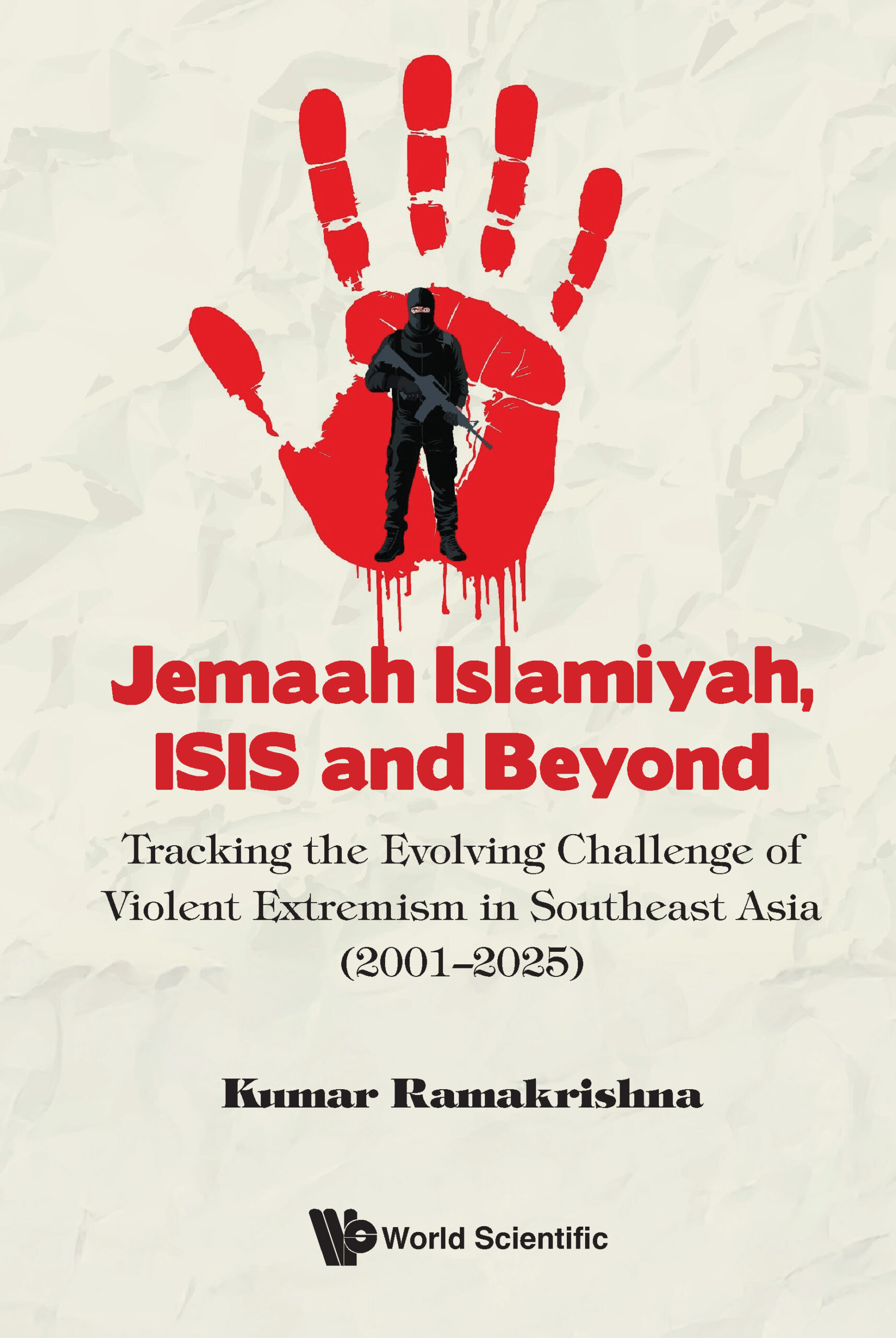Author
Professor Kumar Ramakrishna
Provost’s Chair in National Security Studies, and
Dean, S. Rajaratnam School of International Studies,
Nanyang Technological University, Singapore
Opening Remarks
Ambassador Ong Keng Yong
Executive Deputy Chairman, S. Rajaratnam School of International Studies, Nanyang Technological University, Singapore
Discussants
Dr Noor Huda Ismail
Visiting Fellow, S. Rajaratnam School of International Studies,
Nanyang Technological University, Singapore
Dr Mohamed Bin Ali
Senior Fellow,
Studies in Inter-Religious Relations in Plural Societies Programme,
S. Rajaratnam School of International Studies,
Nanyang Technological University, Singapore
Associate Professor Bilveer Singh
Associate Professor,
Department of Political Science,
National University of Singapore
Moderator
Professor Paul Hedges
Professor,
Studies in Inter-Religious Relations in Plural Societies Programme,
Associate Dean, Scholarly Ecosystems,
S. Rajaratnam School of International Studies,
Nanyang Technological University, Singapore; and
Life Member, Clare Hall,
University of Cambridge, United Kingdom
About the Book
This book explores the evolution of violent extremism in Southeast Asia, charting its development from the 2001 discovery of the Jemaah Islamiyah plot linked to Al Qaeda in Singapore, to the rise of ISIS in the mid-2010s, and the emergence of new forms of extremism such as white supremacist, Hindu, and Buddhist extremism in the 2020s. It provides a comprehensive look at how these threats have shaped both regional and global security landscapes.
The book brings together a series of policy-oriented commentaries that unpack the complexities of extremism, from the rise of terrorist organisations to the dynamics of radicalisation. It also examines key counter-extremism strategies, highlighting the roles of women, youth, and the importance of addressing the ideological narratives that fuel violent extremism. In the final sections, the book brings the conversation up to the present, analysing non-Islamist extremisms, social media’s role in radicalisation, and the need for integrated, context-specific strategies to combat the evolving threat.
About the Author
Kumar Ramakrishna is Professor of National Security Studies, Provost’s Chair in National Security Studies, Dean of the S. Rajaratnam School of International Studies (RSIS), as well as Research Adviser to the International Centre for Political Violence and Terrorism Research, at RSIS. Prior to his current appointments, he was Head, International Centre for Political Violence and Terrorism Research (2020-2022), Head, Centre of Excellence for National Security (2006-2015) and Head, National Security Studies Programme (2016 to 2020). He was also Associate Dean for Policy Studies (2020 to 2022).
A historian by background, Professor Ramakrishna has been a frequent speaker on counter-terrorism before local and international audiences, a regular media commentator on counter-terrorism, and an established author in numerous internationally refereed journals. His first book, Emergency Propaganda: The Winning of Malayan Hearts and Minds 1948-1958 (2002) was described by the International History Review as “required reading for historians of Malaya, and for those whose task is to counter insurgents, guerrillas, and terrorists”. His second major book, Radical Pathways: Understanding Muslim Radicalisation in Indonesia (2009) was featured as one of the top 150 books on terrorism and counterterrorism in the respected journal Perspectives on Terrorism, which identified Professor Ramakrishna as “one of Southeast Asia’s leading counterterrorism experts”. His recent research has focused on understanding, preventing and countering violent extremism in Southeast Asia. His two most recent single-authored books are Extremist Islam: Recognition and Response in Southeast Asia (2022) and Jemaah Islamiyah, ISIS and Beyond: Tracking the Evolving Challenge of Violent Extremism in Southeast Asia [2001-2025] (2025).



 Add to Google calendar
Add to Google calendar
 Add to Outlook calendar
Add to Outlook calendar


